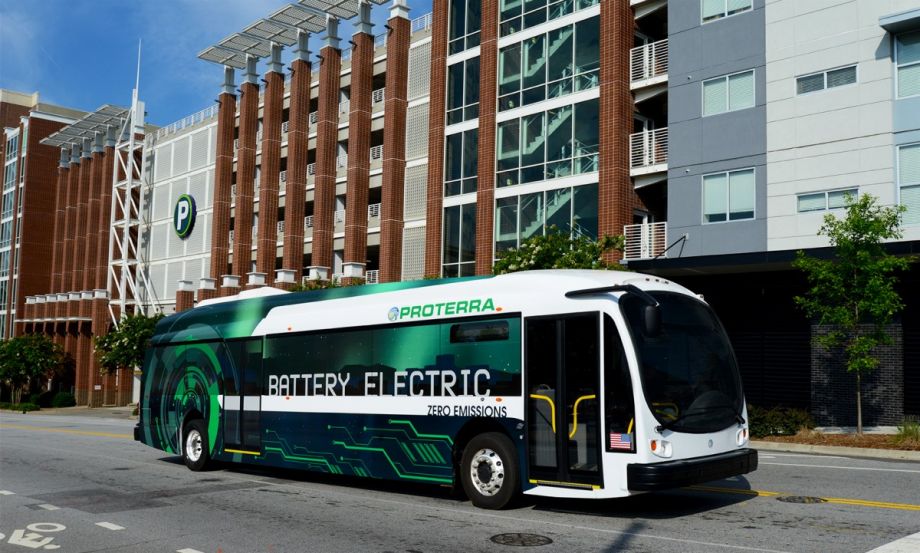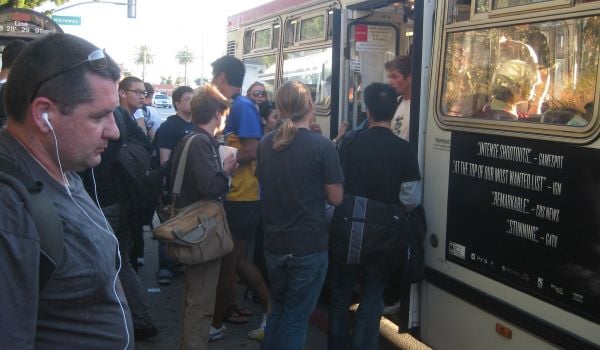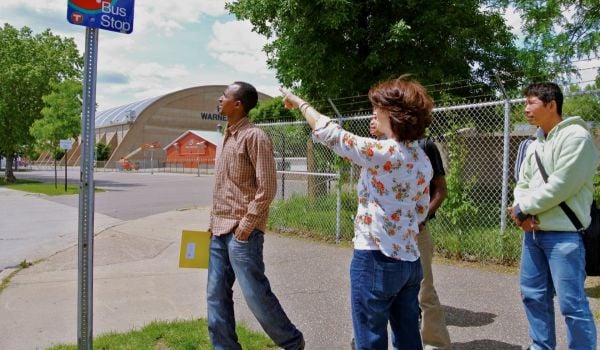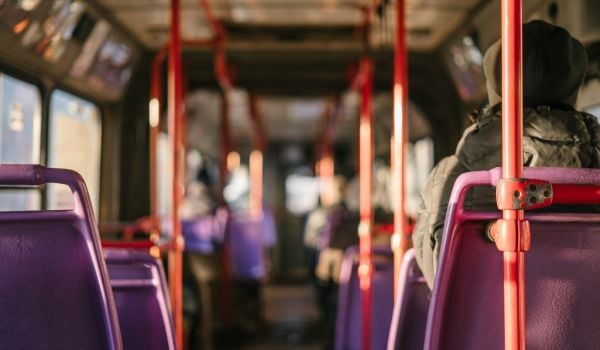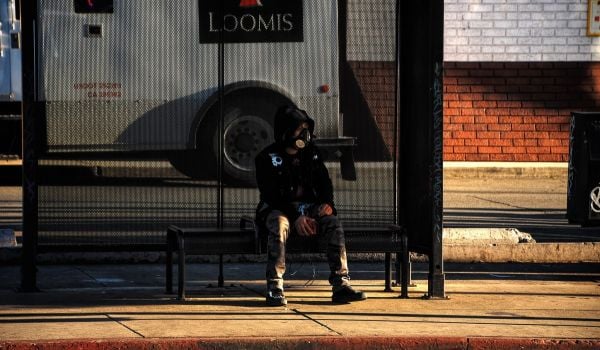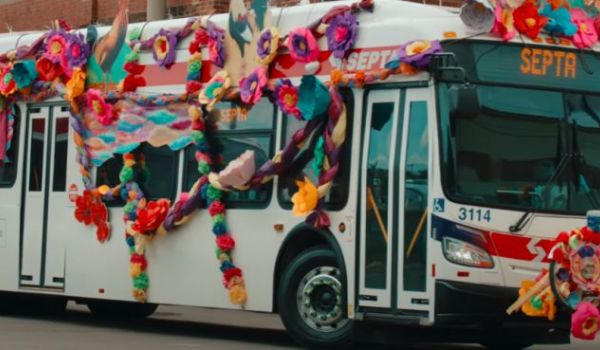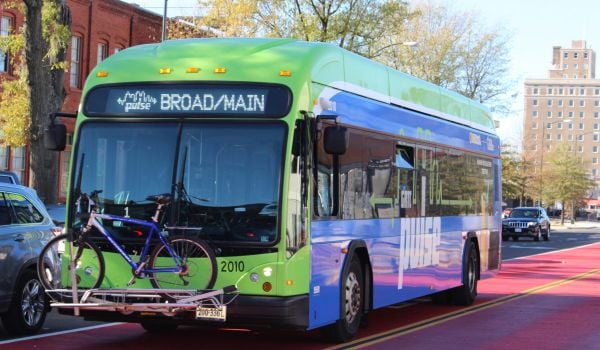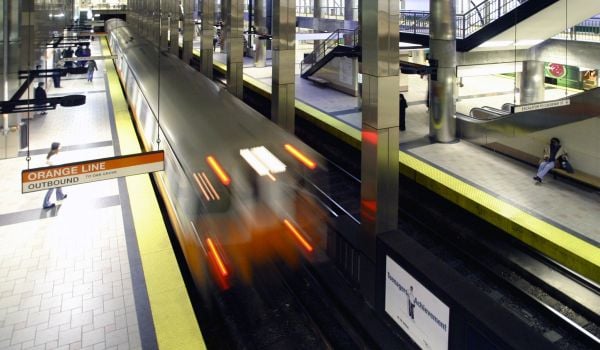2016 may have ushered in the age of the all-electric bus, as Jen Kinney wrote for Next City last year. If Stockton, California, is any indication, however, 2017 might just usher in the age of the all-electric BRT line.
The Central Valley city will become the first in the nation to host an all-electric route on Wednesday, Capital Public Radio reports. Route 44, the line that will be electrified, stretches from South Stockton to downtown.
“We at RTD are proud of our history of commitment to clean energy initiatives,” says Donna DeMartino, CEO of The San Joaquin Regional Transit District, according to the Central Valley Business Journal. “With the nation’s first all-electric BRT route, RTD and Stockton are now leading the charge in providing safe, efficient, reliable and exceptionally clean transportation to people who live and work in South Stockton.”
The Business Journal reports that the electric buses can travel up to 40 miles or for two hours on a single charge, and it takes roughly 10 minutes to charge a bus. Each one cost around $850,000 and the agency used grant money to purchase them. A second all-electric route is reportedly planned for January of next year, and the transit district’s board of directors may soon pass a resolution with the intent of converting all routes to electric by 2025.
Stockton purchased its coaches from Proterra, an electric bus manufacturer run by an ex-Tesla employee (who Next City interviewed here). Stockton was among the first U.S. cities to purchase an electric Proterra bus. In 2015, San Joaquin Regional Transit District Grants Manager George Lorente broke down the cost-efficiency of purchasing an electric bus for Next City.
“The buses are more out of reach for transit agencies that have budgeted for diesel buses,” he wrote in an email, adding that, at the time, diesel buses ranged from $400,000 to $500,000, while hybrid diesel-electric and CNG buses typically cost between $600,000 and $700,000. “For agencies that have been able to operate alternative power vehicles, such as hybrid or CNG, the cost of electric vehicles is getting very close to these type of technologies … particularly with [the] clean energy incentives many local governments are providing.”

Rachel Dovey is an award-winning freelance writer and former USC Annenberg fellow living at the northern tip of California’s Bay Area. She writes about infrastructure, water and climate change and has been published by Bust, Wired, Paste, SF Weekly, the East Bay Express and the North Bay Bohemian
Follow Rachel .(JavaScript must be enabled to view this email address)

